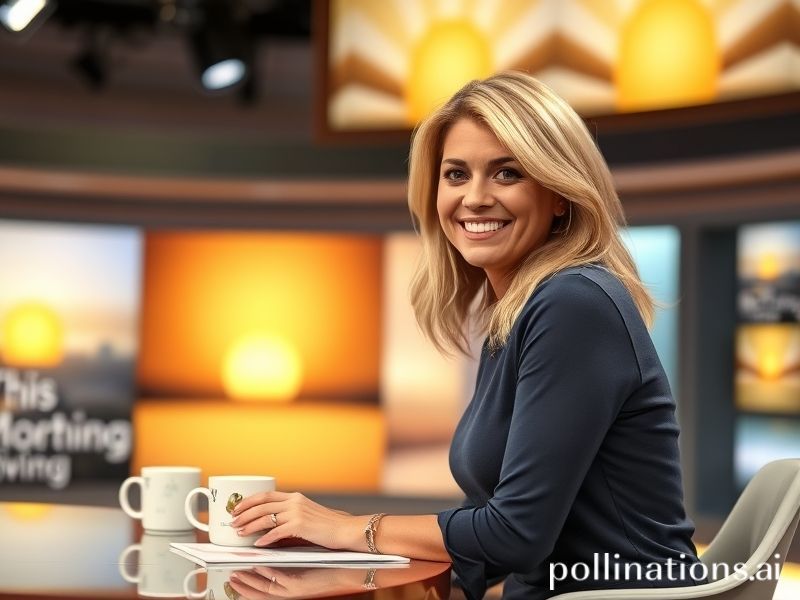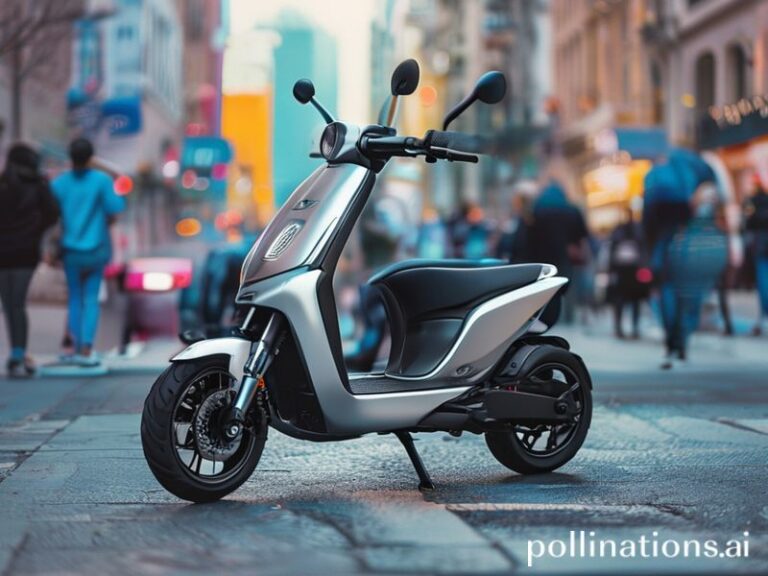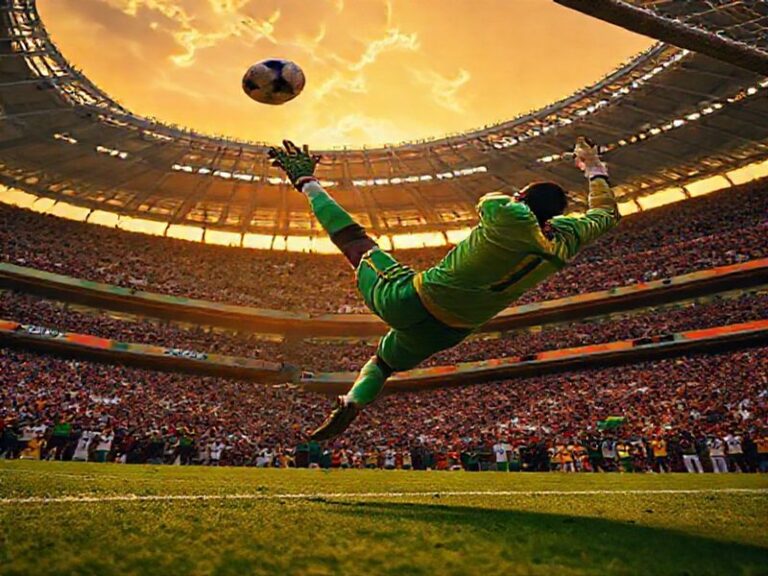Holly Willoughby: How Britain’s Breakfast-TV Queen Became a Global Soft-Power Export (and $1.3M Gilet Influencer)
Holly Willoughby: Britain’s Televised Comfort Blanket Exported to a World That’s Already Freezing
If you have never heard of Holly Willoughby, congratulations—you have just proved you live somewhere beyond the gravitational pull of UK breakfast television, a place where the day begins without a saccharine smile and the faint whiff of mid-tier celebrity desperation. Across the British Isles, however, Willoughby is less a person than a collective coping mechanism: a cashmere-clad reassurance that everything will be fine, provided you remain on the sofa, digesting gossip and muesli in equal measure.
Globally, this is stranger than it sounds. While other nations wake to insurgencies, currency collapses, or the latest American mass-shooting press conference, the UK prefers to ease into reality with a 42-year-old former model asking a Love Island runner-up about moisturising routines. It is, depending on your view, either a touching commitment to national mental health or evidence that the empire ended not with a bang but with a duvet day.
From an international perspective, Willoughby’s career is a case study in soft-power laundering. Netflix may beam The Crown into 190 countries, yet it is Willoughby—via This Morning clips repackaged for TikTok—that teaches the world how Britain likes to imagine itself: apologetically glamorous, emotionally incontinent, and preternaturally polite even when ambushing a prime minister about cheese prices. Foreign diplomats posted to London report that referencing her name at receptions produces the same benevolent fog in British eyes that mentioning “soccer” does in Americans. One Brussels attaché admitted privately that EU trade negotiators used Willoughby memes as conversational icebreakers during Brexit talks—“a reminder,” he shrugged, “that we were bargaining with a country whose electorate can be placated by a nice dress and a saccharine giggle.”
The economic footprint is not trivial. Willoughby’s fashion label, a collaboration with Marks & Spencer, shifts more polyester-blend knitwear than several Baltic states export in timber. Analysts at a Singaporean consultancy recently calculated that a single Instagram post of her wearing an £89 faux-shearling gilet moves £1.3 million of inventory within 48 hours, outpacing the GDP of Tuvalu. If that seems grotesque, console yourself that at least the gilets are recyclable; the same cannot be said for the emotional energy expended by tabloids that treat her every hemline as geopolitical intelligence.
There is, of course, a darker subplot. Last year’s alleged kidnap plot—complete with crossbows, duct tape, and a grisly WhatsApp manifesto—revealed how parasocial obsession curdles into something nastier. International coverage oscillated between sympathy and anthropological fascination: German broadcasters ran explainers on “British Stiff Upper Lip Syndrome Meets Celebrity Anxiety,” while Japanese variety shows gamely recreated the incident using squeaky-voiced puppets. The message was consistent: the same warmth that makes Willoughby marketable also makes her a canvas for every unprocessed grievance in the national psyche.
Yet resilience is a marketable trait. Within weeks she was back on air, eyes glistening just enough to confirm vulnerability without denting the brand. Shares in ITV rose 3%. A Brazilian news anchor sighed on air that “in my country, they’d have made a telenovela by now,” inadvertently proving that Britain still prefers understatement—even when the plot involves armed conspiracy.
What does it all mean? In an era when global news cycles resemble trench warfare, Willoughby offers the narcotic of micro-dosed drama: small enough to tweet, sweet enough to forget. She is the televisual cousin of oat-milk lattes and weighted blankets—a lifestyle analgesic for audiences who can’t decide whether they’re more frightened of climate change or their energy bill. The UN may issue warnings, glaciers may calve, but somewhere a nation of 67 million is being reassured that a nice woman in a pastel blouse still believes in kindness, limited-edition candles, and the restorative power of a good laugh at a cooking segment gone wrong.
If that strikes you as absurd, remember: absurdity is Britain’s last major export not subject to tariffs. And Holly Willoughby, smiling through mascaraed lashes, is its most reliable customs officer—waving us all through with a wink and the unspoken promise that tomorrow’s horrors can wait until after the ad break.







